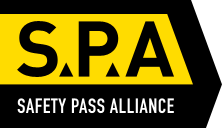Gilbarco Veeder-Root, the UK’s biggest supplier of equipment and services to petrol forecourts, has called on contractors to ensure that their employees hold up-to-date safety passports.
Terry Moody, Gilbarco’s Health and Safety Adviser who also manages the training department, said that the industry believed many employees had not renewed their safety passports.
The passport scheme for the petrol retail industry was developed by the UK’s leading authority in health and safety passport schemes, Warwickshire-based Safety Pass Alliance (SPA) Ltd., in conjunction with the Petrol Retail National Safety Group.
The first two-day courses were held in October 2000 and over 13,000 industry employees have been awarded their safety passports after successfully completing their training. The passport enables contract workers and employees to prove their awareness of basic principles of health and safety in the petrol retail workplace.
Terry said: “There is a concern that many people haven’t renewed their passports, but working practices, technology, legislation, and products are changing all the time. The safety passport courses are refreshed and updated to take account of these developments.”
Employees in the industry had to be made aware of new products on the forecourts, new thresholds in recent Noise at Work regulations, and the new Working at Height regulations that have made significant differences in the way people work on canopies and signware.
“Every single one of our field staff at Gilbarco goes through the training. When an engineer joins the company he has four weeks training of which one week is on health and safety. Two days of that week is specifically devoted to the SPA scheme.
“A lot of our support staff, such as help desk employees and sales staff, have gone through the scheme, not necessarily because they need it, but because we believe it allows them to empathise with the issues that engineers face in the field.”
Terry added: “We recommend everyone to get their passports renewed. When we sub-contract certain works to electricians, for example, we insist that the operatives that undertake the work are holders of current safety passports before they can work for us. If required we are able to deliver the training to our sub-contractors.
“Last year we had our best-ever year as far as accidents are concerned, and we cite the passport scheme as one of the reasons for the low number.”
Gilbarco’s views were reinforced by Chris Hunt, Director-General of the UK Petroleum Industry Association. He said: We have been instrumental in introducing the scheme into our industry, and the safety passport is required by all our members and other major retailers.
“It is important for contractors to keep their passports up to date as refresher training will highlight any recent changes to legislation in addition to the special hazards associated with working on a forecourt.”
Ray Gibbs, managing director of SPA Ltd., said: “A growing number of business sectors in the UK are now embracing safety passport schemes to help reduce accidents and improve efficiency in their companies.
“Major corporations in the food and drinks, construction, quarries, and pharmaceutical sectors are among those that have implemented the safety passport culture and have cut their accident statistics. There is now plenty of evidence to demonstrate that safety passport schemes play a major part in reducing accidents and improving the bottom line.”



















